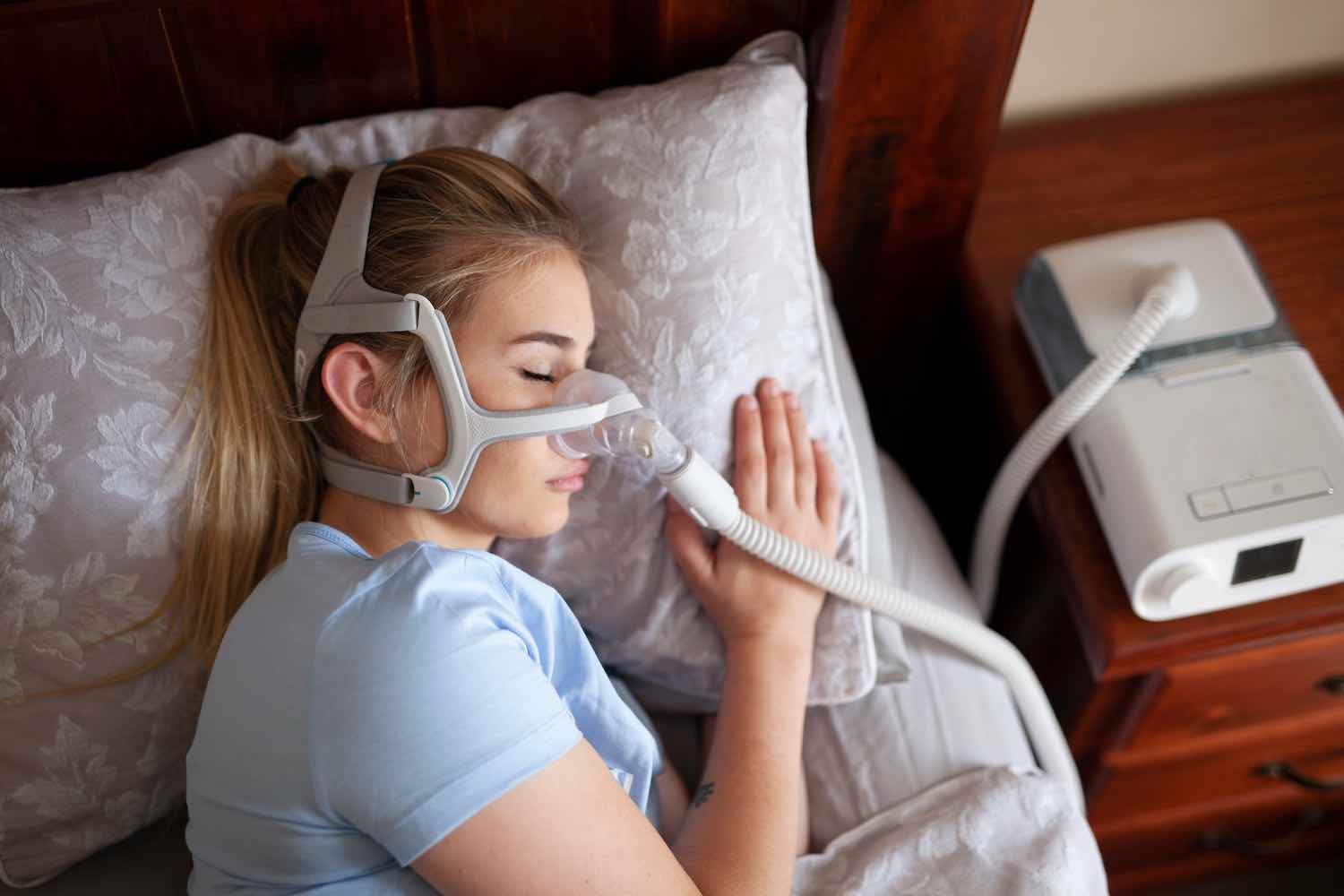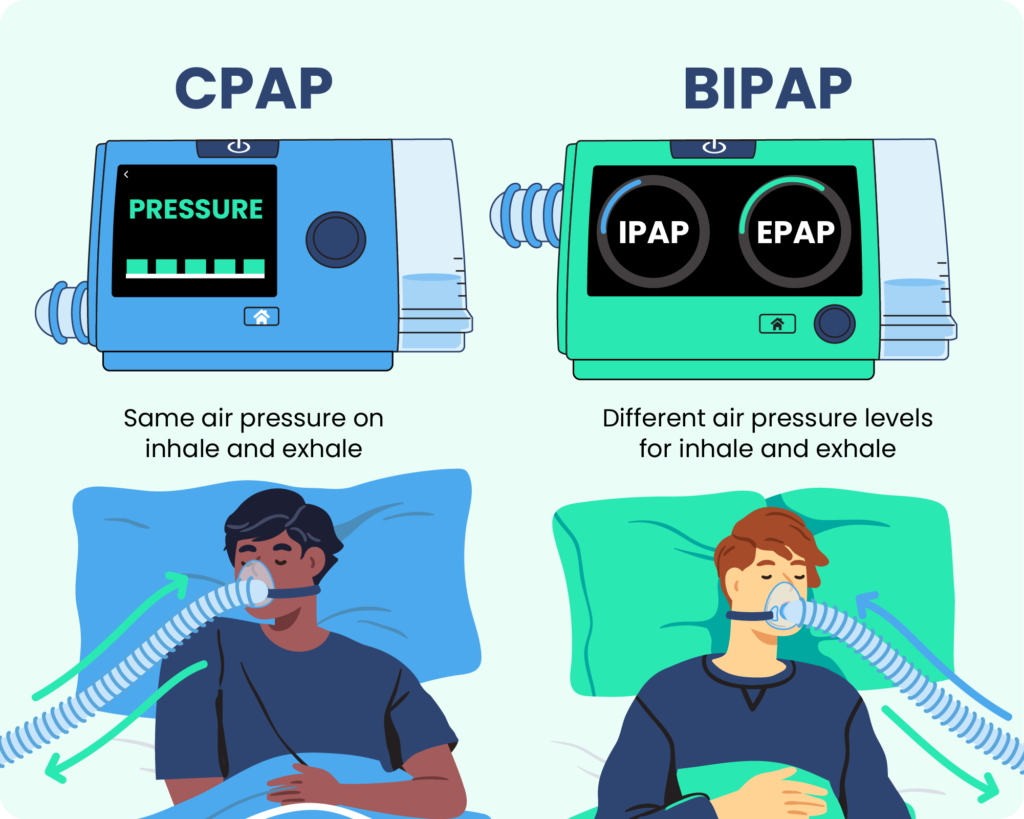Bipap vs. CPAP: Which Is the very best for Your Sleep Problem?
When navigating the complexities of rest conditions, the selection between BiPAP and CPAP treatment is an essential factor to consider. Each method offers special benefits customized to specific problems, yet the choice depends upon private patient needs and convenience degrees. While CPAP offers a stable airflow ideal for obstructive rest apnea, BiPAP's double pressure setups may enhance convenience for those with even more elaborate respiratory concerns. Recognizing these differences can substantially affect treatment efficiency, leaving one to consider which option absolutely lines up with their health demands and lifestyle.
Understanding Sleep Disorders
Rest conditions incorporate a range of problems that disrupt typical rest patterns, impacting both the top quality and duration of remainder. These problems can materialize in numerous forms, consisting of sleeping disorders, sleep apnea, narcolepsy, troubled leg syndrome, and parasomnias. Each condition provides unique difficulties, commonly resulting in significant daytime tiredness, cognitive problems, and emotional disturbances.
Sleeplessness is identified by difficulty falling or remaining asleep, while rest apnea involves repeated disturbances in breathing throughout rest, typically leading to fragmented remainder. Narcolepsy, on the other hand, is marked by extreme daytime drowsiness and abrupt rest attacks. Agitated leg syndrome triggers awkward experiences in the legs, prompting an unmanageable desire to relocate them, which can additionally prevent the ability to go to sleep.
The effect of sleep conditions prolongs past private health and wellness, affecting overall productivity, relationships, and lifestyle. Comprehending the particular nature of each condition is vital for reliable medical diagnosis and therapy. As rest health and wellness ends up being progressively identified as an important element of overall well-being, addressing these disorders is essential for enhancing both rest top quality and daily performance.
Exactly How CPAP Works
Continual Positive Airway Pressure (CPAP) treatment is often utilized as a primary therapy for obstructive sleep apnea (OSA) The device of CPAP includes making use of a device that delivers a steady stream of air via a mask used during rest. This air movement preserves favorable stress in the air passage, avoiding the collapse or blockage of the throat that can happen during rest.
When an individual takes in, the CPAP machine gives a constant flow of air, making certain that the air passage remains open - BiPAP Rental. This not just eases the symptoms of OSA, such as snoring and interfered with sleep patterns, but additionally decreases the associated wellness dangers, consisting of cardio problems and daytime exhaustion
The pressure settings on a CPAP maker can be tailored to meet individual client demands, often figured out via a rest research. Overall, CPAP therapy has been shown to substantially boost the quality of sleep and overall health for individuals experiencing from obstructive rest apnea.
Exactly How BiPAP Functions
BiPAP, or Bilevel Favorable Respiratory Tract Stress, is a customized kind of non-invasive air flow that is specifically advantageous for clients with conditions such as complicated sleep apnea or breathing problems. Unlike CPAP, which supplies a continual stream of air at a solitary stress, BiPAP supplies two unique pressure settings: a higher inspiratory stress for breathing and a reduced expiratory pressure for exhalation. This dual-pressure method enables simpler breathing, decreasing the effort required throughout exhalation.
The tool runs with a mask fitted over the nose or mouth, connected to a machine that generates atmospheric pressure. When the person breathes in, the device delivers the greater stress to help with airflow, ensuring that the respiratory tract stays open. Upon exhalation, the machine instantly decreases the pressure, making it more comfortable for the patient to take a breath out.

Secret Distinctions In Between BiPAP and CPAP

In contrast, BiPAP (Bilevel Favorable Air passage Stress) provides 2 various stress setups: one for breathing and a reduced one for exhalation. This double pressure system enables for more comfy breathing, especially for patients who have a hard time with exhaling against a continual pressure. BiPAP is often suggested for individuals with intricate rest apnea, chronic obstructive this lung illness (COPD), or those that call for added support during rest.
Additionally, the intricacy of BiPAP tools generally causes a greater price and requires much more careful titration than CPAP. BiPAP Rental. Comprehending these vital differences can visit here aid in acknowledging which tool may be extra suitable for particular sleep problems, setting the groundwork for informed therapy choices
Choosing the Right Treatment
Exactly how can one establish the most ideal treatment for taking care of rest problems? The decision in between BiPAP and CPAP treatment mostly depends upon the certain characteristics of the sleep disorder, the patient's general health and wellness, and their convenience with the tool. CPAP, which supplies a continual stream of air, is commonly prescribed for obstructive sleep apnea (OSA) It preserves an open air passage throughout sleep, effectively protecting against hypopneas and apneas.
On the other hand, BiPAP supplies two degrees of stress: one for breathing and a reduced one for exhalation. click here for more This twin pressure system is helpful for people with intricate rest apnea or those who experience trouble breathing out versus a continual pressure. In addition, BiPAP is often suggested for people with respiratory system conditions, such as chronic obstructive lung condition (COPD), where differing pressure settings can boost comfort and conformity.
Eventually, a comprehensive examination by a rest specialist, consisting of a sleep study, can assist establish which therapy straightens best with the individual's demands. Elements such as convenience, convenience of use, and certain clinical conditions ought to additionally be thought about to enhance therapy outcomes.
Final Thought
In recap, both BiPAP and CPAP offer distinctive objectives in the monitoring of sleep disorders. CPAP works for obstructive sleep apnea with constant air flow, while BiPAP uses double stress setups that boost convenience for those with intricate rest apnea or respiratory system concerns. The selection in between these treatments need to be guided by individual needs and problems, necessitating an extensive examination by a sleep specialist to guarantee optimal therapy end results and enhanced high quality of sleep.

Overall, CPAP therapy has been shown to dramatically boost the high quality of rest and general health for individuals experiencing from obstructive sleep apnea.
BiPAP is frequently recommended for people with complex sleep apnea, chronic obstructive pulmonary illness (COPD), or those who need added assistance during sleep.
CPAP is effective for obstructive sleep apnea with consistent air flow, while BiPAP supplies twin stress setups that boost convenience for those with complex sleep apnea or breathing problems.